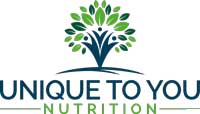
Embarking on a fitness journey after the age of 40 can feel like navigating unfamiliar terrain, but it’s a path laden with opportunity and transformation. The key to success lies in adopting a holistic approach that balances physical activity with nutrition and mental well-being. Let’s delve into a comprehensive plan, courtesy of Unique to You Nutrition, to achieve vitality and strength at this empowering stage of life.
Embracing the Journey
The journey of maintaining fitness beyond 40 is not about reversing aging but optimizing your body’s capabilities for future years. Setting realistic, health-oriented goals and exhibiting patience with progress are key.
Engage in activities that you enjoy to maintain consistent motivation, and incorporate these into a well-rounded routine that encompasses strength training, flexibility exercises, and cardiovascular workouts. Regular health check-ups and consultations with fitness professionals can offer personalized guidance and adjustments to your regimen based on your body’s changing needs. Staying informed about age-related physiological changes helps in adapting your fitness strategy, ensuring it remains effective and safe.
Properly Fuel Your Body
As you age, adapting your nutrition to suit your evolving metabolism becomes critical for maintaining fitness. A balanced diet, high in proteins, supports muscle maintenance and repair, whereas the inclusion of fruits, vegetables, and whole grains boosts energy levels and contributes to overall health.
Consulting nutrition experts who specialize in the dietary needs of individuals over 40 is beneficial, as they can tailor dietary recommendations to align with your specific fitness goals. Incorporating healthy fats, like those found in nuts and avocados, can further enhance cardiovascular health.
Strength Training: The Fountain of Youth
Strength training is a powerful tool to combat the natural decline of muscle mass as we age. Emphasizing resistance and weight-bearing exercises not only engages various muscle groups but also enhances metabolism and strengthens bones, countering age-related bone density loss.
Starting with basic exercises and gradually increasing intensity and resistance helps to progressively challenge muscles, fostering adaptation and strength improvements. Consistent strength training can also improve joint health and flexibility, essential for maintaining functional mobility. Incorporating a variety of exercises ensures a well-rounded approach, reducing the risk of overuse injuries.
Keep the Heart Young with Cardio
Maintaining a healthy heart is crucial for longevity, and engaging in enjoyable aerobic exercises can make this pursuit more pleasurable than burdensome. Regular cardiovascular activity not only enhances heart health but also plays a significant role in weight management.
Utilizing tools such as heart rate monitors during workouts can help ensure that your exercise intensity stays within a safe and effective range, thereby maximizing health benefits. Additionally, incorporating varied forms of cardio, such as cycling, swimming, or brisk walking, can keep the routine engaging and prevent boredom. These activities also promote better circulation and respiratory function, further contributing to overall well-being.
Flexibility and Mobility
As we age, maintaining flexibility and mobility is essential not only for fitness but also for ease in everyday activities. Incorporating yoga and consistent stretching routines helps in preserving muscle elasticity and supporting joint health.
Regularly engaging in activities that challenge your range of motion, like Pilates or tai chi, can also significantly contribute to joint flexibility and overall body balance. These practices, along with proper hydration and a balanced diet, further support the body’s natural ability to maintain mobility and flexibility.
Recovery and Rest
Effective recovery is more than just taking a break; it’s a crucial process where your body repairs and strengthens itself. Prioritizing quality sleep and incorporating designated rest days are key components of a healthy recovery routine. Integrating relaxation techniques such as meditation or massage therapy can significantly boost the recovery process.
Additionally, engaging in active recovery activities like walking or light swimming can aid in rejuvenation while avoiding excessive strain. Balancing intense workouts with gentle movements on rest days helps maintain a harmonious physical state, contributing to overall fitness and well-being.
Supplements to Fill the Gaps
With evolving dietary needs as we age, supplements become key in bridging nutritional deficiencies.
Essential supplements like multivitamins, fish oil, and vitamin D, specifically formulated for those over 40, can effectively complement your diet. Supplements such as calcium and magnesium can also support bone health and muscle function, which are particularly important in later years.
Consulting with healthcare professionals is crucial to select supplements that align with your health objectives and are compatible with your body’s requirements. This personalized approach helps in maximizing the benefits of supplements, ensuring they contribute positively to your overall well-being and fitness goals.
Herbal Remedies to Support Stress, Recovery
In enhancing fitness after 40, herbal remedies like ashwagandha, turmeric, and THCA offer significant support in muscle recovery and relaxation.
Ashwagandha, known for reducing stress and managing cortisol levels, can improve muscle strength and mass, vital for maintaining fitness in later years. Turmeric, rich in anti-inflammatory and antioxidant properties due to its active ingredient curcumin, helps reduce muscle soreness, aiding faster recovery post-exercise. THCA, a non-psychoactive compound in premium THCA flower derived from the cannabis plant, is emerging as a beneficial aid in muscle relaxation and tension relief, with potential anti-inflammatory and neuroprotective benefits.
Integrating these herbs into your fitness routine can naturally enhance muscle health and recovery, supporting a stronger and healthier you.
Embrace Community for Support
The journey to fitness encompasses both mental resilience and physical strength. Adopting mindfulness practices and effective stress management techniques not only sharpens focus but also enhances endurance during physical endeavors. Fostering mental well-being through a supportive community of individuals with similar fitness goals can offer valuable emotional support and increase motivation.
Regular engagement in activities that promote mental relaxation, such as meditation or deep-breathing exercises, can significantly reduce anxiety and improve overall mental health. Furthermore, setting realistic fitness goals and celebrating small achievements can boost self-esteem and provide a sense of accomplishment, further supporting mental wellness.
Each step of this journey is a building block toward a healthier, more vibrant you. With dedication and the right approach, fitness after 40 can be a rewarding adventure, replete with personal achievements and a renewed zest for life. Embrace this chapter with the assurance that it’s never too late to invest in your health.

Leave a Reply